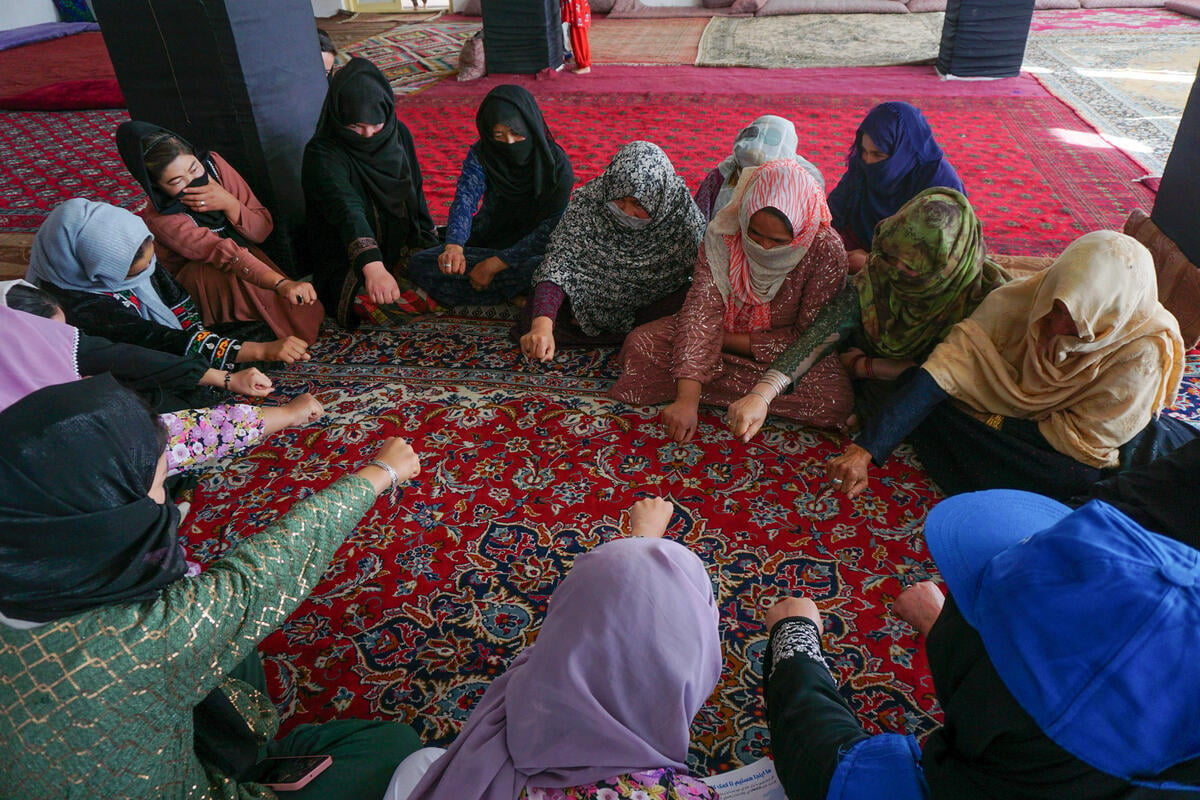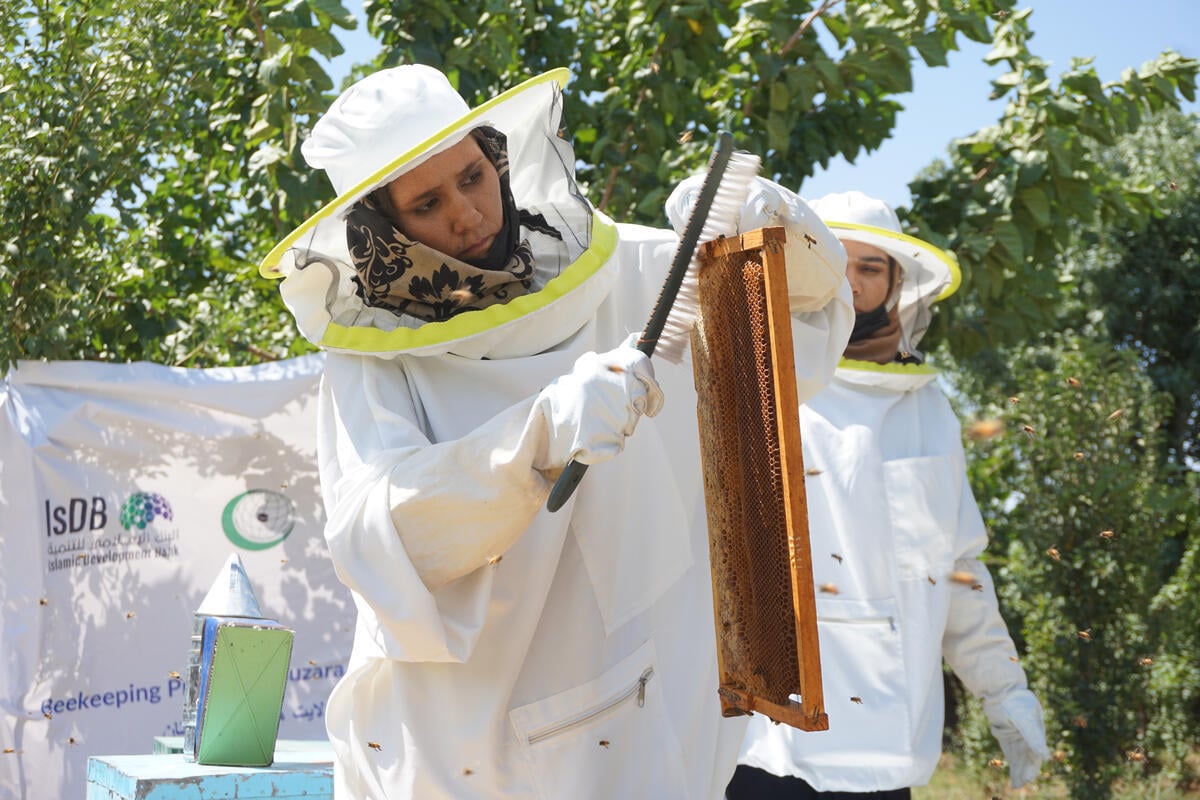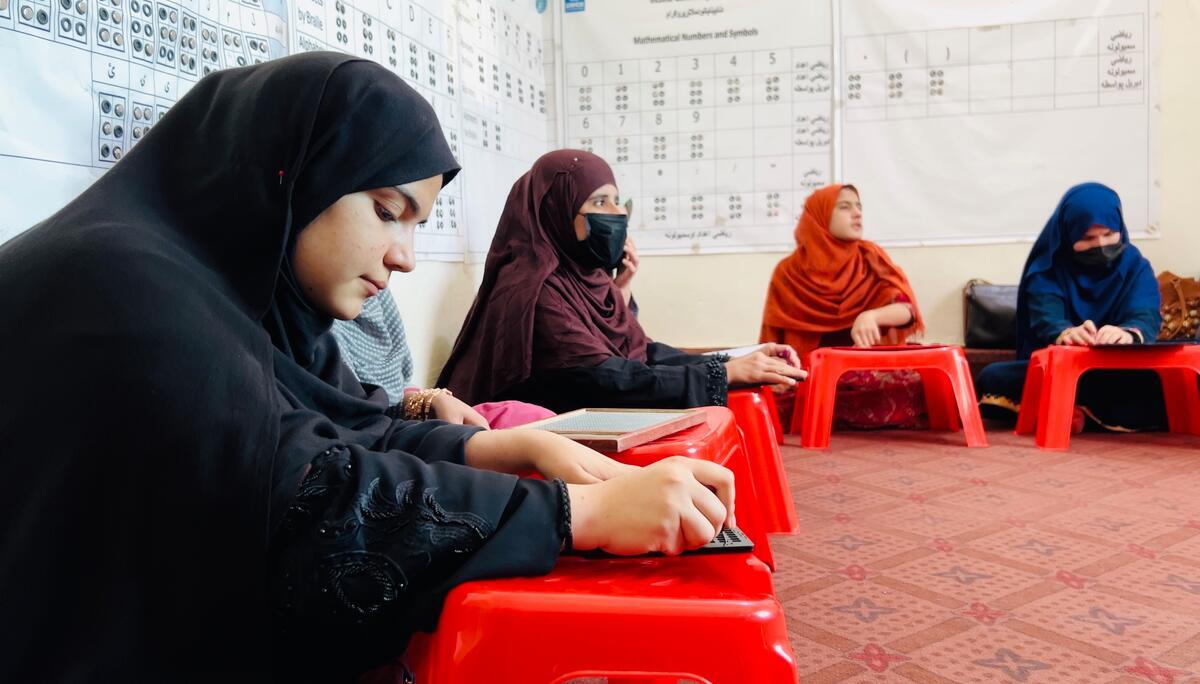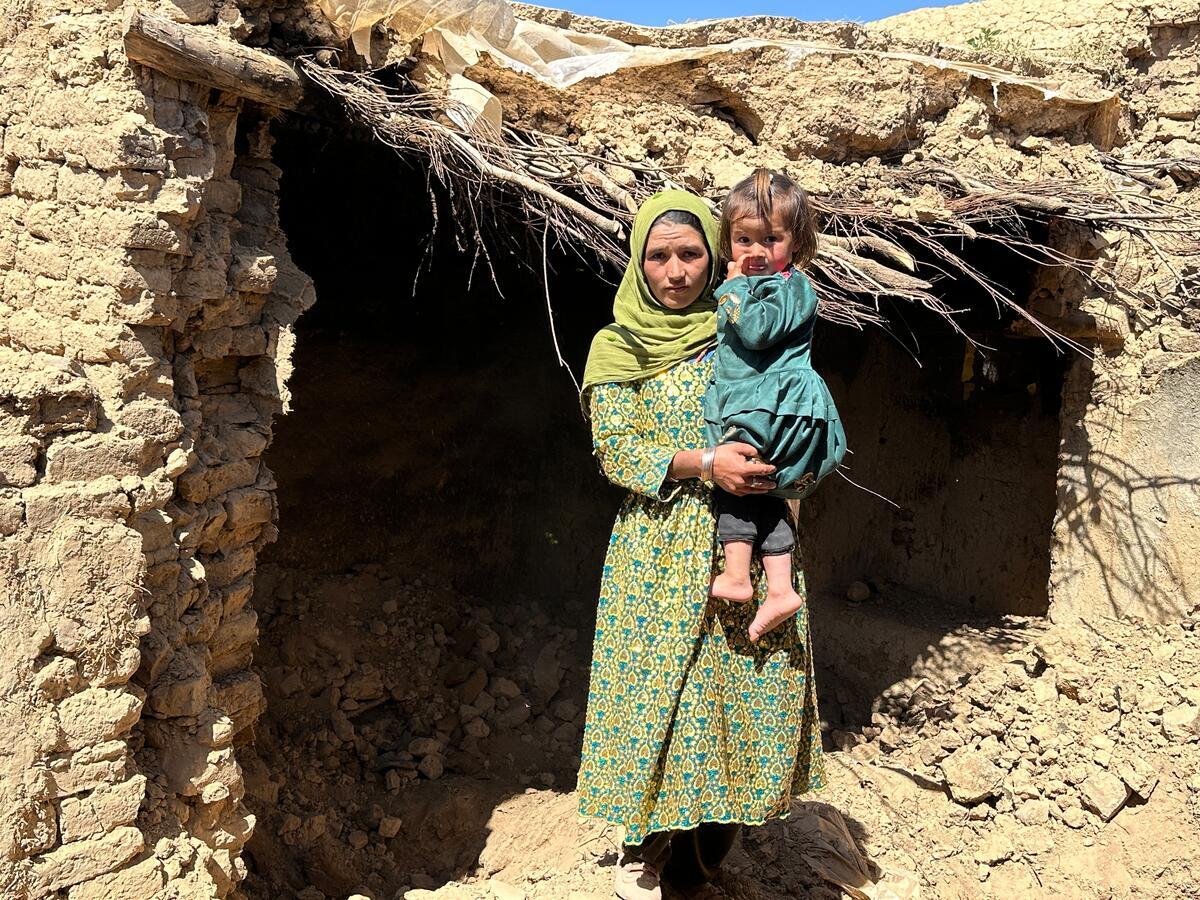Delegation carries requests of Afghans in Pakistan back to Kabul government
Delegation carries requests of Afghans in Pakistan back to Kabul government

ISLAMABAD, May 4 (UNHCR) - After two weeks of hearing Afghans in Pakistan talk about obstacles to their repatriation, a delegation from Afghanistan has headed home to press the Kabul government to incorporate the needs of Afghan exiles in its future planning.
The tour by the delegation, with members from the Afghan ministries and political factions from Balkh, Jawzjan, Mazar-i-Sharif, Sar-i-Pul and Faryab provinces of northern Afghanistan, ended last week. The UNHCR-sponsored visit was aimed at strengthening the ongoing voluntary repatriation process to these provinces.
"We told Afghans in Pakistan that their government has not forgotten them and has the desire for all Afghans to return home slowly, gradually and voluntarily," said Abdul Basir Marefat, the director of legal affairs for the Afghan Ministry of Refugees and Repatriation, who was in the delegation.
"The delegation will emphasize to the Afghan government the need to put into their plans the concerns of Afghans from the five northern provinces living in Pakistan. We will be presenting these concerns as our findings from the 'come-and-talk' visit," he added.
The nine-member team travelled to Pakistan's four provinces and the federal capital, Islamabad. They shared with Afghans information on the recovery process and re-establishment of national institutions and organisations in Afghanistan, the disarmament campaign, the revival of the Afghan national army and the police, and the political advances.
"We encouraged returning Afghans to get in touch with the Ministry of Refugees and Repatriation, which is present all over the country. Now there are no forced recruitments for the national army, no illegal tax collection and there is a special court for refugees to re-claim their properties in Afghanistan," said Marefat.
The delegates are members of the Return Commission Working Group, formed nearly three years ago to help remove obstacles in five provinces of Afghanistan where factional rivalries were hindering repatriation.
"The Afghan government, through a presidential order, has announced a general amnesty for all Afghans involved in minor crimes," Mohammad Karim Nazar, a human rights trainer in the team, told Afghans in Karachi.
Apart from telling them about conditions in the north of Afghanistan, the visiting delegation also took note of the concerns blocking their voluntary return to Afghanistan.
Mohammad Yaqoub Ayoubi, a political assistant with the United Nations Assistance Mission in Afghanistan (UNAMA), said that many Afghans reported they were staying in Pakistan due to a lack of shelter, a lack of confidence in the political stability and continuing concerns with the security in Afghanistan.
"Our analysis, after discussions with Afghans in Pakistan, suggests they have different reasons for their unwillingness to return for the time being. There were Afghans who have social economic problems. They usually compare the availability of facilities in both countries and have also established strong links in Pakistan," he said.
He stressed the need to resolve the problems of specific groups like the nomadic Kuchis. "There is a need for special planning to reintegrate them in Afghanistan and the government will also need to look into the issue of whether Kuchis should return to their old ways of life or settle somewhere permanently. On this issue, the delegation will give recommendations to the government to specially consider this case."
Ayoubi added, "The Afghan government needs to make efforts for well-established businessmen like the Turkmen to encourage their return. They might agree to take back their whole carpet-weaving operations to Afghanistan."
Land and shelter issues surfaced during the meetings as a main impediment to Afghans' return. UNHCR plans to provide shelter in Afghanistan to 6,000 vulnerable returnee families this year. But, aside from helping sometimes to settle ownership disputes, UNHCR cannot resolve questions of land distribution that must be resolved by the Afghan government.
With the UNHCR voluntary repatriation programme for 2005 underway, the delegation from northern Afghanistan also met Afghans who were ready to return. More than 2.3 million Afghans have already returned home voluntarily from Pakistan under the programme since it started in 2002.
UNAMA's Ayoubi attributed the returns to the parliamentary elections expected in October, improvements in security, the best rains in decades after years of drought, and other developments.
A recent census of Afghans in Pakistan - the first ever - revealed there are more than 3 million Afghans still living in Pakistan. During the last three years, the UN refugee agency has organized "go-and-see" visits for them to see conditions in their parts of Afghanistan before making a decision on their repatriation.
The voluntary repatriation of Afghans is continuing under a Tripartite Agreement signed between UNHCR, Pakistan and Afghanistan that expires next March. UNHCR estimates that around 400,000 Afghans will return home from Pakistan this year.
By Babar Baloch
UNHCR Pakistan








